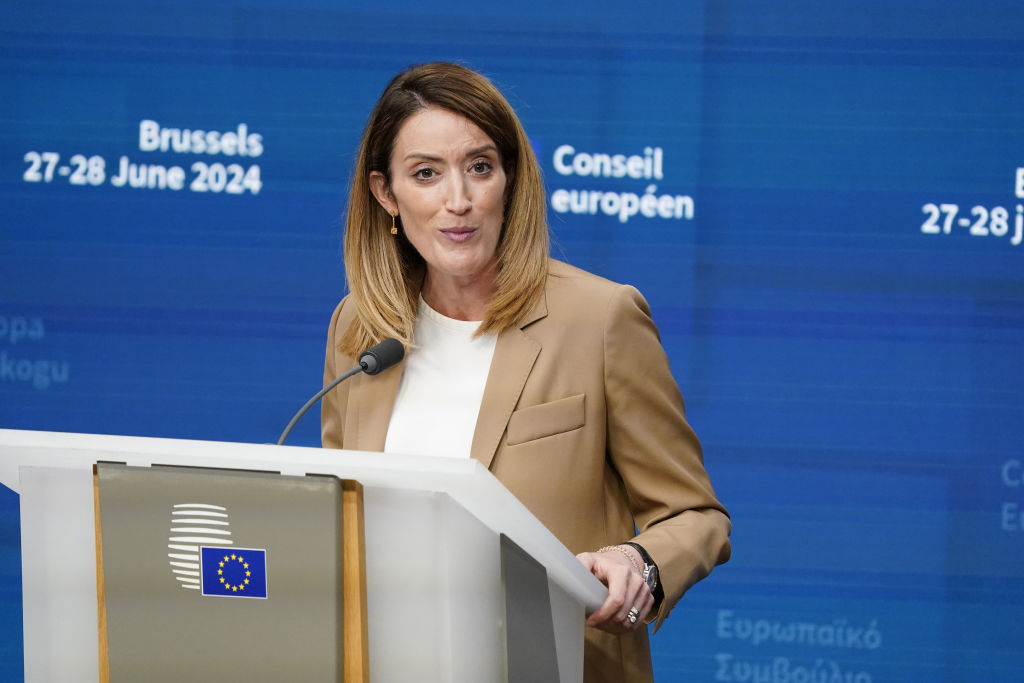Slovakia’s Government has blasted reports of the European Commission allegedly planning to block European funds for Bratislava over concerns about “democratic backsliding”.
On September 9, Bloomberg reported that the EC had laid the groundwork “to censure Slovakia over the erosion of democratic norms”. Other international news outlets swiftly picked up on the story.
Robert Fico’s populist-left Slovak administration was said to be eroding democratic norms by abolishing the office of the special prosecutor, who was in charge of several corruption cases involving European Union funding.
According to Bloomberg, which cited anonymous “people familiar with the matter”, the procedure was reportedly in its initial phase, with EC President Ursula von der Leyen still having to green-light any such decision.
On September 9, a spokesperson for the Slovak Ministry of Foreign and European Affairs told Brussels Signal: “The Slovak Republic rejects the dissemination of false information by the Bloomberg agency about the stopping of EU funds for Slovakia.
“The process of the so-called conditionality mechanism, which can be initiated by the European Commission to protect the Union budget in cases of breaches of the rule of law in a Member State, has its own clear rules, timeframes and course, and is never an unilateral and non-discussed decision by the European Commission.
‘The European Commission has not formally or informally announced such a move,” the spokesperson said.
“The Slovak Republic, and in particular the representatives of the Ministry of Justice of the Slovak Republic, have been in intensive contact with the European Commission for a long time on this matter.”
“The amendment of the relevant legislation was, among other things, the result of their consultations with the European Commission and also responded to comments made by the Commission on the protection of the Union’s financial interests.”
An EC spokesperson confirmed the statements to Brussels Signal.
Currently, the EC and Slovakia are working on two issues, the ‘recovery and resilience facility’ and the so-called conditionality regulation.
Regarding the first, there was a “milestone [15.5] package of laws to fight corruption and strengthen integrity and independence of the justice system”.
“This milestone was considered to be satisfactorily fulfilled at the time of the Commission’s preliminary assessment of Slovakia’s first payment request,” the EC spokesperson said.
“The Commission is currently in the process of analysing the potential implications of amendments to the Slovak Criminal Code on milestone 15.5 in light of the Constitutional Court’s ruling of July 4, 2024 and the legislative amendment to the Criminal Code of July 16. The Commission will finalise its assessment in a timely manner.”
Regarding the conditionality regulation, the spokesperson said the EC continued to study the rule-of-law situation in Slovakia, as is the case across the EU.
“We assess every situation individually and pursue steps if the criteria set out in Article 4 of the regulation are met.
“We currently have one case under the regulation involving Hungary and we have no further cases to announce at this point in time.
“The Commission will not hesitate to take further action under this regulation if the relevant criteria are met,” the spokesperson said.
“As regards Slovakia specifically, and as previously indicated, the Commission is in the process of analysing the recent reform of the Criminal Code, and this continues.
“Therefore, there is currently no decision taken or awaiting political approval as regards the activation of the regulation concerned,” the spokesperson concluded.





